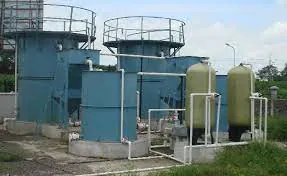Sewage Treatment Plant In Bangalore
Quick Service Request
Sewage treatment plants
A sewage treatment plant (STP) is a facility designed to treat wastewater generated from residential, commercial, and industrial sources. Its primary objective is to remove pollutants, contaminants, and pathogens from sewage before it is discharged into the environment or reused for various purposes. Below, we’ll delve into the components, processes, and importance of sewage treatment plants.

Components of a Sewage Treatment Plant
- Inlet Works: This is where raw sewage enters the treatment plant. It typically includes screens or grates to remove large debris, such as plastic bags and sticks, that could damage downstream equipment.
- Primary Treatment: Involves physical processes such as sedimentation and flotation to remove settleable solids, oils, and grease from the sewage. Sedimentation tanks or clarifiers are commonly used for this purpose.
- Secondary Treatment: Utilizes biological processes to break down organic matter and remove dissolved pollutants. Common methods include activated sludge, trickling filters, and biological aerated filters (BAFs).
- Tertiary Treatment: Optional treatment stage aimed at further polishing the effluent to meet specific quality standards or reuse requirements. Methods may include filtration, disinfection (e.g., chlorination or ultraviolet irradiation), and nutrient removal (e.g., phosphorus or nitrogen removal).
- Sludge Handling: Involves the treatment and disposal or reuse of the solids removed during primary and secondary treatment. Sludge may undergo processes such as thickening, digestion, dewatering, and drying before disposal or beneficial reuse.

Processes Involved in Sewage Treatment
Screening: Removes large objects and debris from the sewage using screens or grates to protect downstream equipment from damage.
- Primary Sedimentation: Allows settleable solids, oils, and grease to settle out of the sewage, forming a sludge layer at the bottom of sedimentation tanks or clarifiers.
- Biological Treatment: Utilizes microorganisms to biodegrade organic pollutants in the sewage, converting them into carbon dioxide, water, and microbial biomass.
- Filtration: Removes remaining suspended solids, pathogens, and fine particles from the treated sewage using sand, gravel, or membrane filters.
- Disinfection: Kills or inactivates remaining pathogens, bacteria, and viruses in the treated effluent to ensure its safety before discharge into receiving water bodies or reuse applications.
Services Provided by A S Water Solutions In Bangalore
Design and Engineering: A S Water Solutions offers customized design and engineering services for STPs tailored to the specific wastewater characteristics, treatment objectives, and space constraints of apartments and homes.
- Installation and Construction: The company manages the construction, installation, and commissioning of STPs, ensuring quality craftsmanship, compliance with standards, and timely completion.
- Operation and Maintenance: AS Water Solutions provides comprehensive operation and maintenance services to ensure the efficient and reliable performance of STPs, including routine inspections, preventive maintenance, troubleshooting, and technical support.
- Upgrades and Retrofits: The company offers upgrades and retrofits for existing STPs to enhance treatment efficiency, capacity, and reliability, as well as to incorporate advanced technologies for improved performance and compliance
Site Inspection
Schedule An Appointment
Benefits of Sewage Treatment Plants
Environmental Protection: STPs play a crucial role in protecting water bodies, ecosystems, and public health by treating wastewater before it is discharged into the environment.
- Disease Prevention: By removing pathogens and contaminants from sewage, STPs help prevent the spread of waterborne diseases and protect public health.
- Water Conservation: Treated sewage can be reused for irrigation, industrial processes, and non-potable applications, conserving freshwater resources and reducing demand on potable water supplies.
- Regulatory Compliance: STPs help industries and municipalities comply with environmental regulations and discharge standards, avoiding penalties and legal liabilities associated with pollution.
Additional Sewage Treatment Plant Services
We Also Offer

